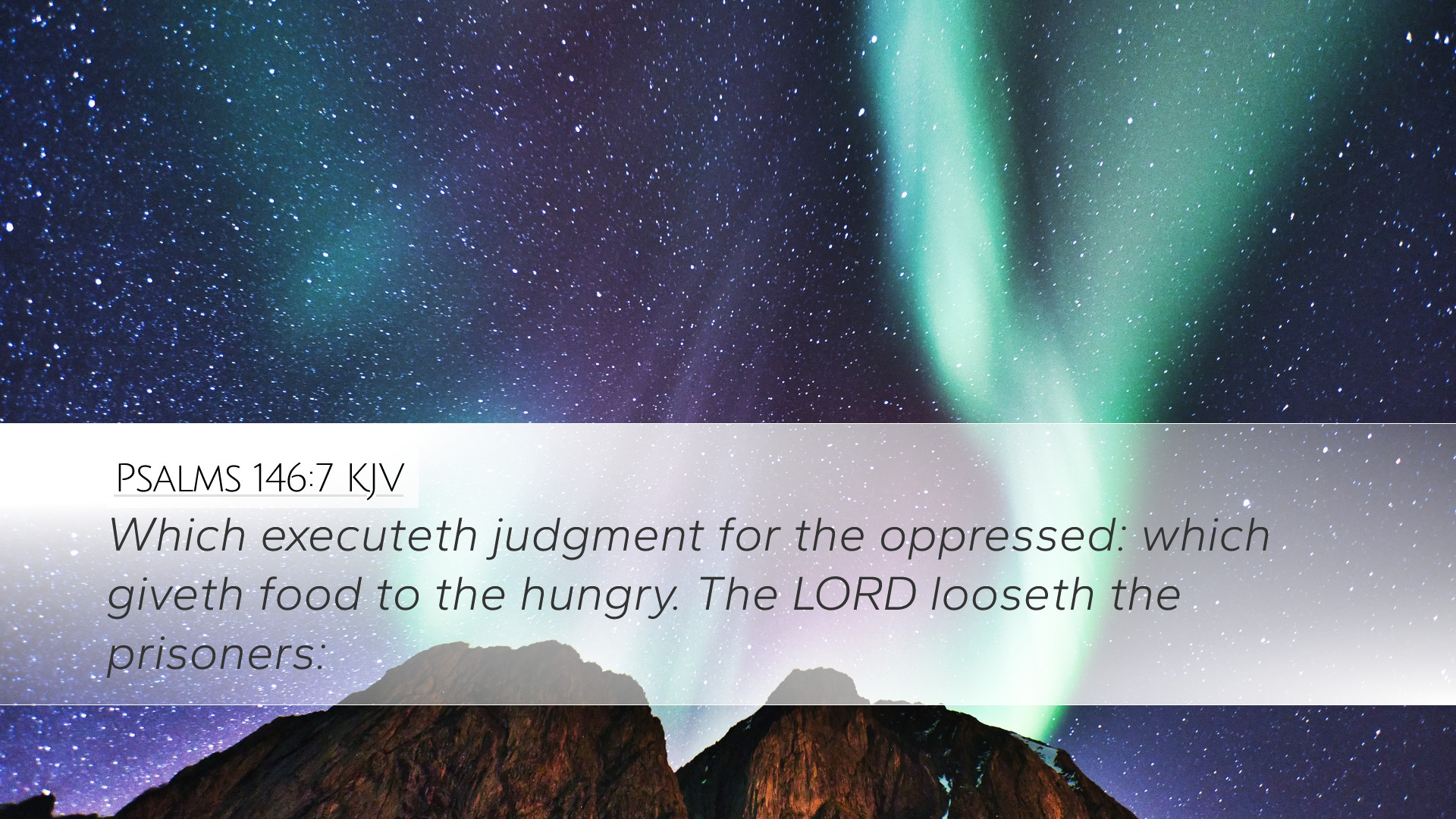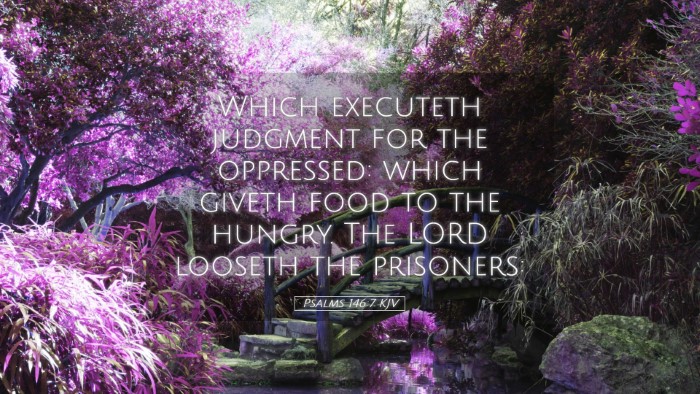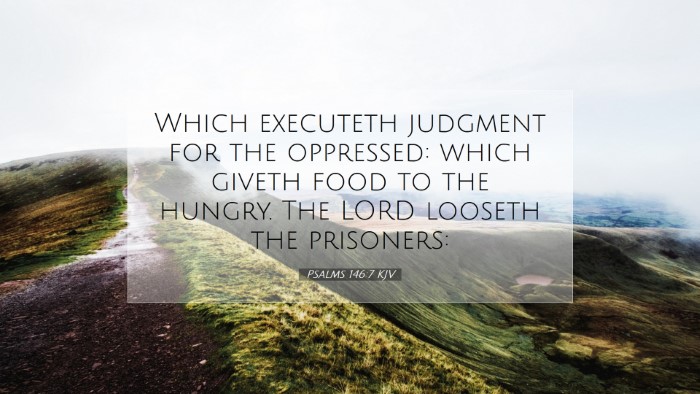Psalms 146:7 - A Commentary
Verse: "Which executeth judgment for the oppressed: which giveth food to the hungry. The LORD looseth the prisoners."
Introduction
Psalms 146 is a powerful declaration of praise to God, highlighting His character as a protector and provider for those in need. This verse encapsulates the essence of divine justice and mercy, revealing God's commitment to the underprivileged and marginalized within society. The insights from public domain commentaries provide a rich contextual exploration of this scripture.
Contextual Analysis
This psalm belongs to a group of hymns that emphasize God's kingship and His roles as a deliverer and sustainer of His people. The psalmist invites the faithful to trust in the LORD, contrasting the ephemeral nature of human leaders with the everlasting faithfulness of God. Verse 7 specifically sheds light on God's action in favor of the downtrodden, which reinforces the central theme of divine justice throughout the psalm.
The LORD Executeth Judgment for the Oppressed
Matthew Henry notes that the psalmist underscores God's role as a righteous judge who stands up for those who are wronged. The term "judgment" encompasses the idea of both legal justice and social equity. God's judgments are not merely punitive; they are protective, providing a sanctuary for those who suffer injustice.
Albert Barnes elaborates that God’s judgment is restorative. It reflects His concern for social righteousness. He contends that the oppressed—those who experience systematic injustice or personal affliction—are seen and valued by God. The implication here is profound: God not only observes the plight of the marginalized but actively intervenes on their behalf.
Which Giveth Food to the Hungry
This phrase highlights God's provision for physical needs, particularly the vital sustenance of food. Adam Clarke interprets this as an aspect of God's goodness that extends beyond mere spiritual sustenance to include the tangible needs of life. It forms a critical part of God’s care for His creation. Through providence, God ensures that the hungry are fed, which is a direct expression of His mercy.
Moreover, Matthew Henry posits that this provision is not random but intentional. It signifies God's attentiveness to daily needs and His ability to provide. The faithful community is encouraged to reflect this divine characteristic by being generous and caring for the needy of their own midst, embodying the nature of God in their lives.
The LORD Looseth the Prisoners
The concluding phrase of this verse offers a profound insight into God's liberating power. Albert Barnes points out that the image of prisoners conveys both literal imprisonment and metaphorical bondage. This includes those enslaved by sin, addiction, and despair. God’s role as the liberator mirrors the core message of the Gospel, which promises freedom and transformation in Christ.
Adam Clarke further emphasizes that the liberation God offers is twofold: it signifies both physical release from captivity and spiritual deliverance from the chains of sin. This divine intervention provides hope and healing, extending beyond the prison walls to individuals entangled in spiritual captivity.
Theological Implications
The theological implications of this verse are profound. It illustrates a God who is not distant but intimately engaged with the world and His creation. This active involvement is a cornerstone of biblical ethics, calling believers to advocate for justice and mercy.
- Divine Justice: The assurance that God seeks out and defends the oppressed serves as a model for believers, urging them to champion justice.
- Human Responsibility: The call to feed the hungry and free the imprisoned is a clarion call for the Church to embody God's character in practical ways.
- Hope in God: Believers are reminded that in times of suffering, they can trust in God's provision and deliverance.
Conclusion
Psalms 146:7 encapsulates the essence of God's character: a judge, provider, and liberator. The insights drawn from esteemed commentaries provide a multi-faceted understanding of the verse. For pastors, students, theologians, and Bible scholars, this passage serves as an imperative to recognize God's active role in social justice and human dignity. It calls upon the faithful to engage in reflecting God's mercy in their communities, providing sustenance, advocating for justice, and offering hope to the oppressed.


